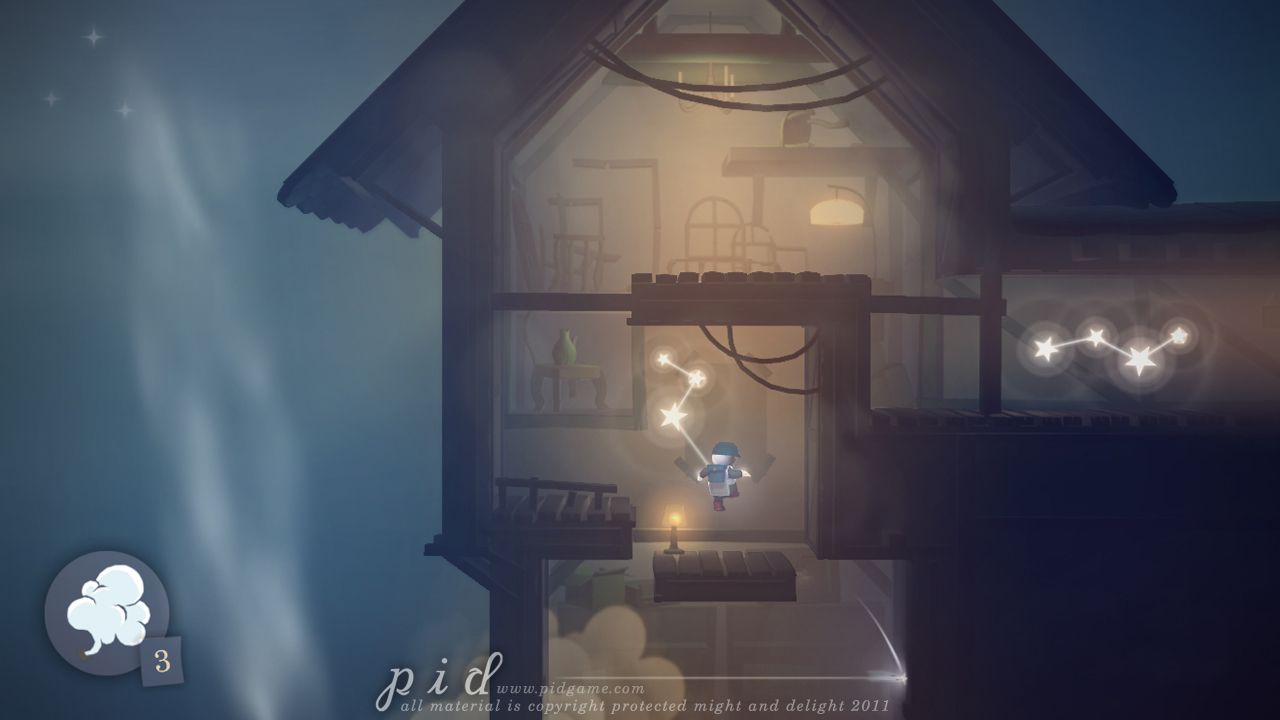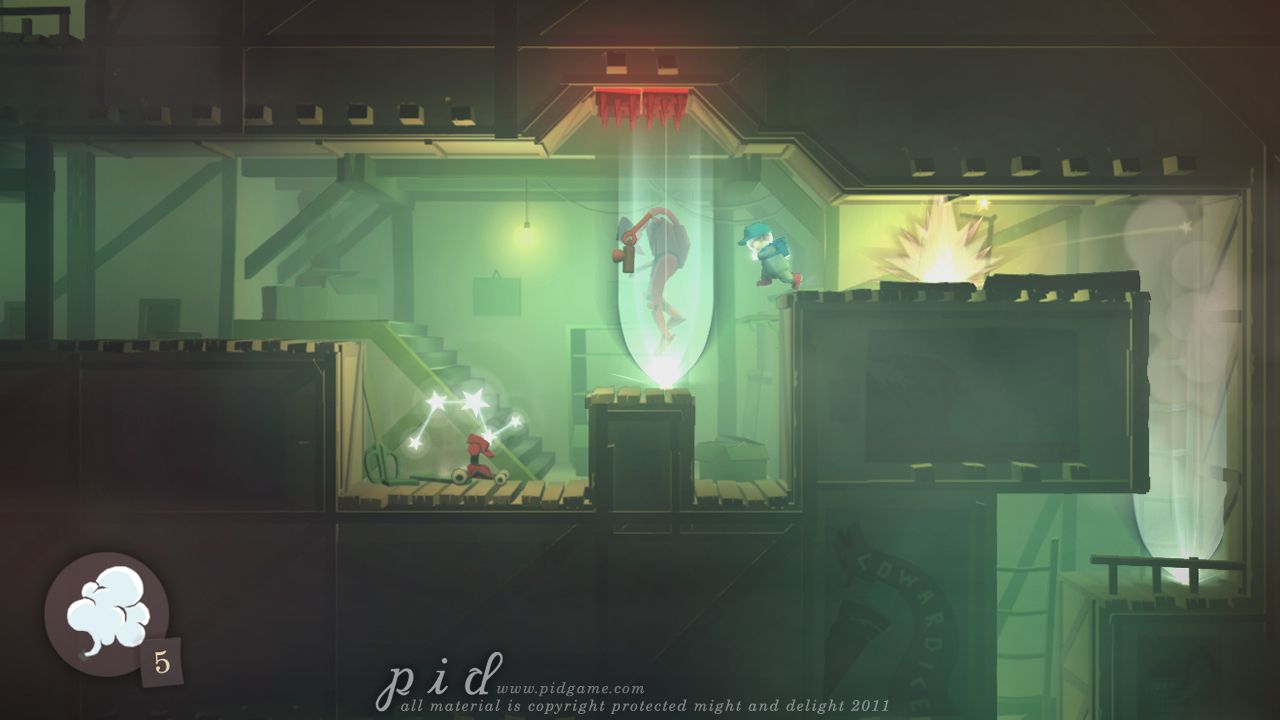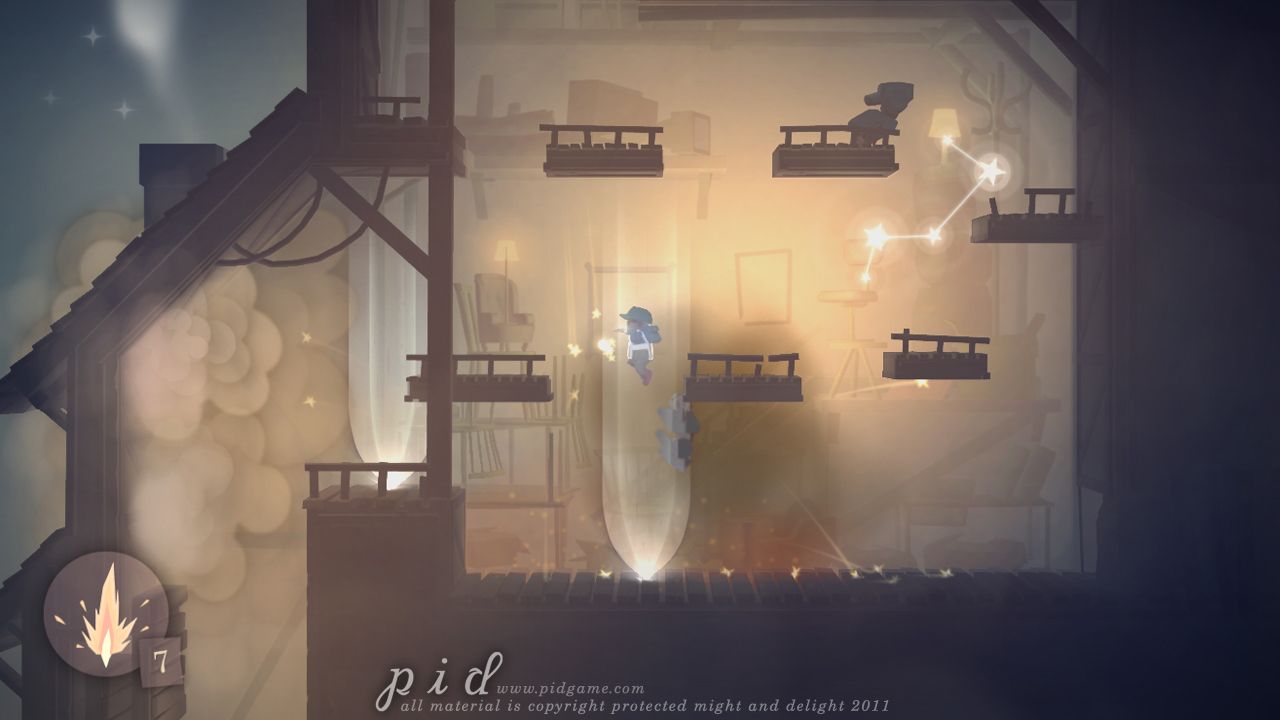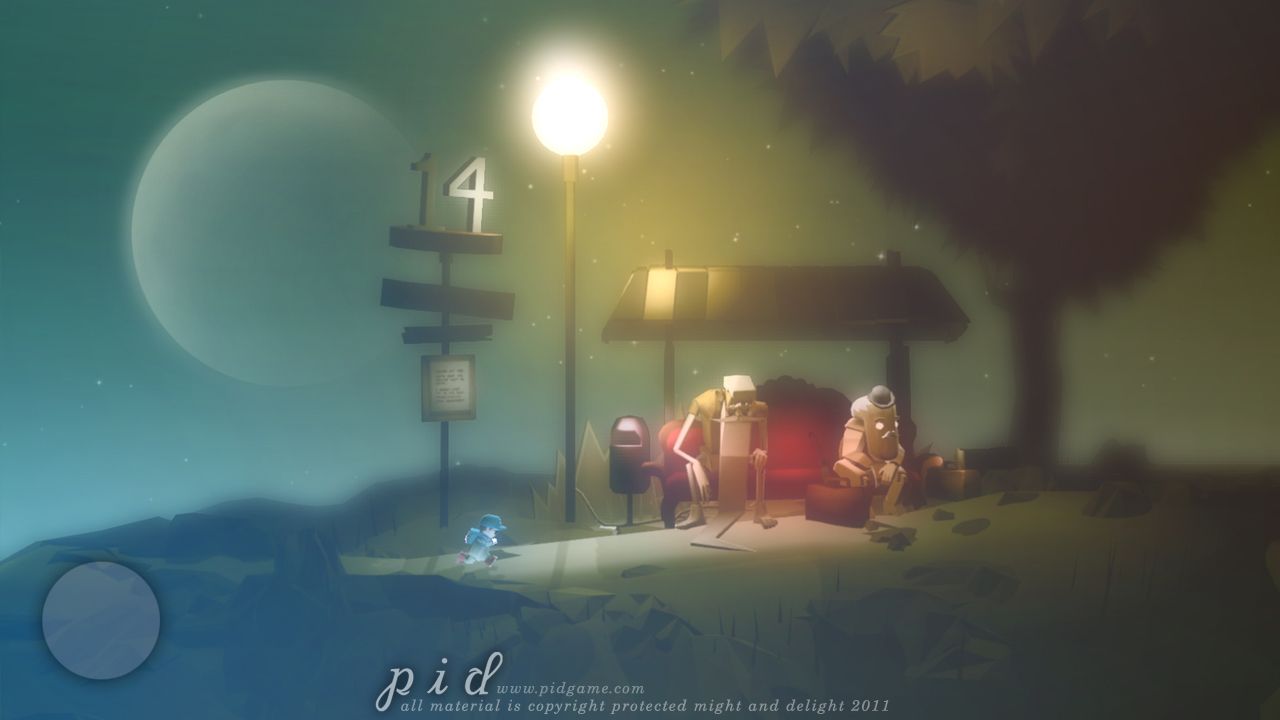Pid Review
Pid has its charms, and it has its challenges. The two, however, never really manage to work in concert. This is not Dark Souls, where crushing difficulty helps to underscore themes of isolation and despair. Nor is it Flower, where zen visuals and a subdued soundtrack compliment a meditative, relaxed ludic experience. Rather, the difficulty of Pid’s gameplay is a perpetual drain on one’s ability to appreciate the game’s unique artistic flourishes, and its leisurely, dreamlike stylings never instill any urgency or drive with which to overcome the game’s challenges. Both the mechanical and thematic sensibilities of Pid have their share of independent successes, but each holds the other back from achieving any sort of transcendent state.
Note: A patch has been released for the PC version of the game which purportedly addresses issues with the game’s difficulty. This patch has not yet been announced for the PS3 version.

Everything begins promisingly enough. A simple storyboard describes how the hero, the inauspiciously-named Kurt, falls asleep on an intergalactic school bus. Kurt wakes on an alien planet, and the game begins. The goal, at least at the onset, is to find a way home. It’s a fairly minimalist start as things go, one that harkens back to the likes of Closure, Braid, and Limbo. Like those titles, Pid makes a strong first impression with it’s simple, bold visual style. Kurt’s newfound world is seen through a hazy soft focus, a vaseline-smeared aesthetic that gives everything a sleepy, dreamlike patina. Early on, that aesthetic carries over into the gameplay readily enough. Kurt moves with a lethargic gait: his running speed is leisurely, his jump floaty. He’s quickly imparted with a pair of throwable orbs which, when cast onto a surface, emit a sort of reverse-tractor beam that propels him forwards. Using these tools to navigate Pid’s early obstacles takes on a pleasant sort of zen, as you leap over enemies and levitate via beams with a languid grace. The beams are the game’s most innovative touch, and so it goes about rigging puzzles and situations in which to employ them.
The results are a mixed bag. Most puzzles are simple enough to be solved at a glance or two, which makes for a leisurely run through the early proceedings. Coupled with the game’s dreamy aesthetics and sleepy, smooth jazz soundtrack, it all makes for a rather enjoyable, laid-back experience. But it quickly becomes clear that there are only so many possible scenarios with which to employ the beam, and consequently, Pid’s bag of tricks empties out long before game’s end. You find yourself recognizing situations at a glance – “Oh, here’s the one where I have to throw the beams here, and there.” By way of replacement, the game asks for greater feats of precision from the player. It introduces smaller platforms, throws more (and more difficult) enemies in the path, and asks the player to perform the same tasks under duress.

It’s then when things begin to break down. Kurt’s quickly outpaced by the hazards that rise up against him: many enemies are faster or more agile than his stunted legs can manage. His slow pace and floaty jumps exacerbate the difficulty of evading enemies or defeating bosses, making Pid’s challenge seem artificial, and tremendously infuriating. Curiously, Pid is a one-hit-kill game, a design choice that seems completely at odds with the nature of the game’s other elements. It’s a feature that’s at its worst during the games handful of multi-stage boss fights, wherein death at any point sends you back to the start. Sure, there’s a protective vest that’ll allow Kurt to absorb the ill-effects of a single mistake, but the game provides no invincibility period thereafter. Fall into a strip of spikes, for example, and you’ll be just dead with the vest as without. The game’s platforming thusly ends up becoming incredibly stringent, requiring precision that the floaty controls are ill-suited for. The issue is laid bare when you scale to the top of one of Pid’s tall verticals, only to botch the landing on a tiny platform and plummet all the way back to the base.
Kurt does have an assortment of additional tools and weaponry with which to navigate the world or destroy baddies, including various bombs, launchers, and the like. Coupled with the beams, it’s a more robust arsenal than those found in typical two-dimensional platformers. But I found myself lamenting Kurt’s inability to throw his beam orbs or bombs with anything other than a halfhearted toss – landing a shot on anything that isn’t two feet in front of you is an exercise in frustration. Some enemies can be killed by tossing a beam orb into funnels on their bodies, but the orbs have a grating tendency to pass through them impotently. Late in the game you’re finally granted the ability to direct the beams with greater control, but it feels like a feature that was withheld needlessly. Kurt’s also a sitting duck when he’s stuck in one of his beams – his movement is hampered, and exiting the beam is an unwieldy endeavor, at best.

Items can be purchased at specific vending machines placed about the world, though if you’re like me, you typically won’t bother. You’re just as like to find the very item that you purchased ten paces past the machine, you can only hold a couple of any item at a time, and there’s a good chance you’ll die right after employing your new toy. Kurt pays for these items with stars, which serve as the de facto collectible and currency. Stars are fairly easy to accrue; in a pleasant touch, they’re pulled towards Kurt when he’s near. But without any pressing need to spend stars for anything, I always found myself with a sizeable cache of them. It’s a blessing and a curse: I only collected those that fell directly in my path, content to forego the harder-to-reach ones. There’s the benefit of more carefree traversal of levels (and you probably won’t be compelled to retrace your steps to collect any stars), but there’s also very little incentive to explore.
The latter’s a bit of a shame, because Pid’s levels are otherwise a joy to behold. They tread on familiar grounds (a house, a factory, a town), but each is rendered with layered details and pleasing depth of field effects. The world’s inhabitants, a race of assorted tinker toy robots, vary in size from child’s playthings to towering colossi, and the levels scale to accommodate them in playful, creative ways. Musty, claustrophobic crawl spaces give way to sweeping open-air environments (or open-vacuum, in the case of an outer space level). At one point, you hitch a ride on a set of pint-sized planets that float about like an infant’s mobile.

Kurt’s a sort of Alice in Wonderland character, scrambling across massive furniture and conversing with strange giants. It’s part-and-parcel of a children’s story vibe that extends across much of Pid’s narrative and presentation, from its whimsical conception through to its fairy tale finish. There’s even some interesting thematic stuff going on in the periphery about gravity and the relation of Kurt’s beams to the overarching plot. It’s gentle, beautiful stuff, like Harold and the Purple Crayon was put through an Instagram filter. That soft focus effect lends a pleasant warmth to the lighting, in particular. I’m not sure that I’ve ever felt cozier in a game than I have within Pid’s dollhouse attics. I imagine they smell of rich mahogany and many leather-bound books.
But cozy doesn’t jive with hair-pulling difficulty, unfortunately. Pid seems to be try to mesmerize its players and punish them simultaneously, often in the very same scene. It’s an incongruity that’s perpetually unsettling. One can’t help but feel like the game would have been better off picking a side and sticking to it. Some might have opted to preserve Pid’s crushing difficulty, reinforcing it with more complementary surface treatments. I suspect I’d have had greater appreciation for a casual, more forgiving romp, something that works in tandem with Pid’s clever stylings and font of thematic material. Instead, the difficulty pulls me back to earth whenever I try to get swept up in Pid’s innocent dream of the cosmos. I’m stuck with a different sort of dream: the one where you’re being chased by something big and fast, but you’re only able to run away in slow-motion.
